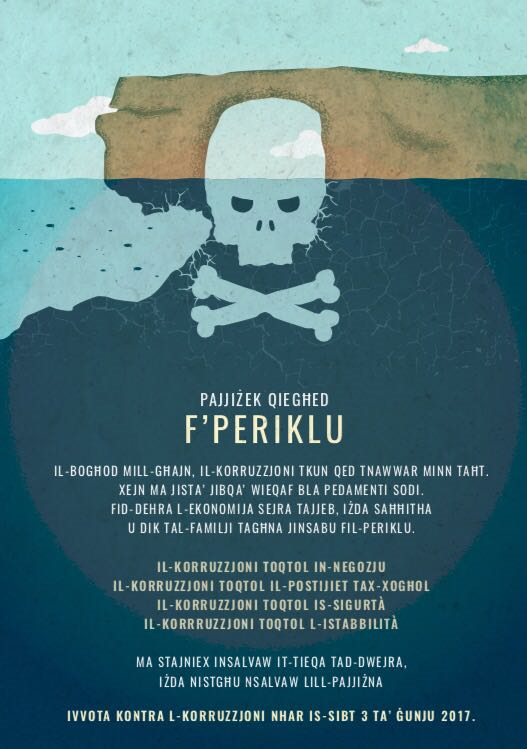Konrad Mizzi was planning to rob us from Day 1
And it wasn’t just the Panama company and New Zealand trust which he began the process of setting up even before he had been sworn into the cabinet in March 2013.
At least four Financial Intelligence Analysis Unit reports are now in the public domain. The people who leaked them risked prosecution, with a fine and prison term on conviction, to do so – so for God’s sake try to understand the gravity of what we are dealing with here.
In one of those reports, it is explained in detail that Konrad Mizzi, a minister of the government, declared to parliament far more money than he actually had in his bank account. In his first declaration of assets, to parliament, in July 2013, Mizzi said that he had €341,713 in the bank.
But the Financial Intelligence Analysis Unit’s investigation confirmed that he lied. When the FIAU used its powers under the law to obtain information about his funds from the banks in question, it found that he had a running balance of just €92,000, a far cry from the €341,713 he said he had.
Why would a politician declare to parliament that he has more money in the bank than he does in fact? We are accustomed to situations in which they tell us that they have less than they do.
Is it to boast and show off? No, of course not – even though we all know by now that Konrad Mizzi isn’t at all normal. That is the kind of thing a politician does when he plans to be corrupt.
You over-declare from the start so that when illicit funds are transferred to your bank accounts, no questions will be asked – though questions will still be asked, or should be, by the bank about the source of those funds, and the Inland Revenue might be interested in trying to match up the date of your declaration with the date the funds actually arrived in your account.
You might recall how that same year, their first in power, Manuel Mallia declared to parliament, among his assets, €500,000 in cash. Because Muscat’s party was fresh in to government, and still smelling of roses and a bright and hopeful future of Taghna Lkoll, nobody followed that up. The press just let it go.
But the reality is: who owns half a million in cash, and why? Well, exactly. By way of unconvincing justification, Mallia said that he had sold a house in Romania. But if he had sold the house in Romania to somebody in Romania, he would not have been paid in cash and he would not have been able to ship the cash over in a suitcase. And if he sold the house in Romania to somebody in Malta, he would not have been paid in cash because that is completely against the law: Malta’s Anti-Money-Laundering Act is very strict.
Nobody picked that up, either: that if the Police Minister had really been paid in hard cash for a house, he was in serious breach of the very anti-money-laundering legislation he is there to ensure that everyone upholds.
But we shouldn’t believe him when he says the half million in hard cash came from a deal in which he sold a house in Romania. In today’s world, cash of that nature only comes from crime: if not your crime, then the crime of the person/s who paid you with it, and that makes you guilty of another crime, that of conspiracy to launder it.
These people are criminals. Criminals with a sophisticated plan to rob the Maltese people blind. A plan they devised before the election and which they set in motion immediately after. I don’t think we should let them get away with it. It would be wrong, and we need to do the right thing here.

